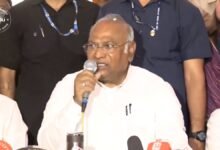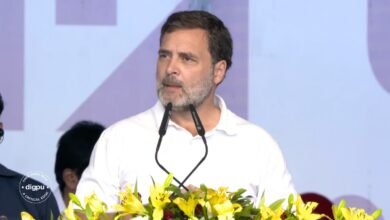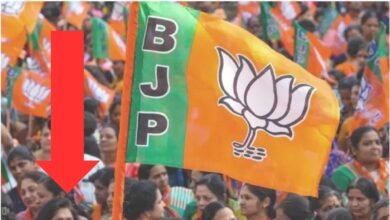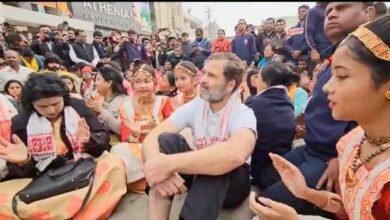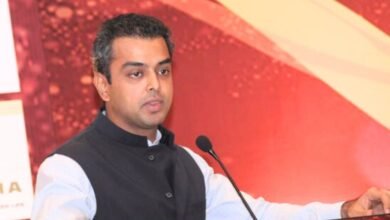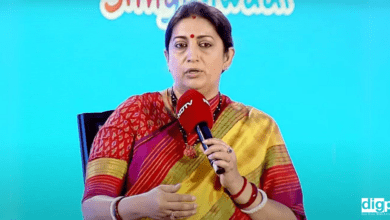The ‘Unshakable’ and ‘Undomitable’ Atal Bihari Vajpayee!
Remembering India's tenth Prime Minister on his 99th Birth Anniversary, a man who lived up to his name.
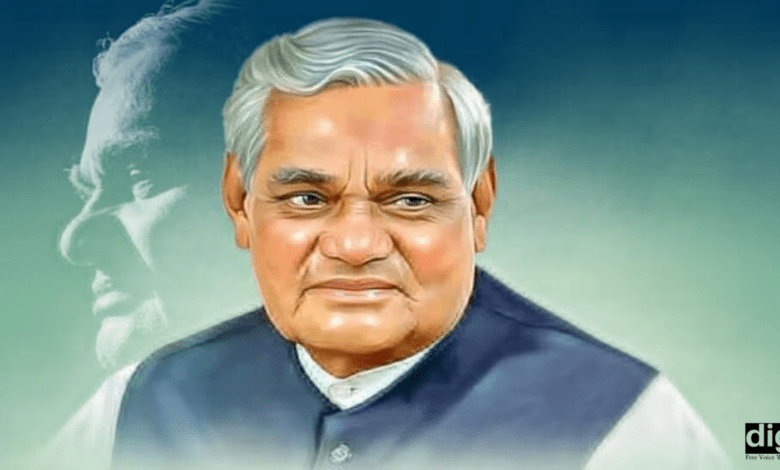
In 1994, India’s Prime Minister PV Narasimha Rao flaunted the beautiful feathers of India’s democracy by sending the opposition leader, Atal Bihari Vajpayee, to affirm India’s stance on the sensitive issue of Kashmir — this was an impeccable diplomatic move on Rao’s behalf. However, Vajpayee showcased his statesmanship and selfless love for the nation by following Rao’s cue!
Since we live in times where party workers betray their colleagues without a second thought, it would be hard to imagine that an Indian Prime Minister would appoint an opposition leader to lead a delegation inside an international convention. Fortunately, those were the glorious days when India’s democracy featured leaders who looked beyond the spectrum of political ambitions. Politics was not always a mud-slinging fest, and the art of shaping and governing society (guided by conscience and empathy and not mere ambition) was an affair of dignity.
Vajpayee spent a sizeable part of life as a Leader of the Opposition, wading through the infamous National Emergency (1975) and intense political crackdowns. Despite all these, he seldom, if ever, harboured a feeling of contention against the Gandhis and the INC.
In 1996, he became India’s Prime Minister for 13 days. In 1998, he held the helm for 13 months. Finally, in 1999, Vajpayee became India’s first non-congress Prime Minister to complete a full term. Today marks his 99th Birth Anniversary, and this is our attempt to commemorate some of the many tremendous feats achieved by India under the Prime Ministership of Shri Atal Bihari Vajpayee. Today, we shall elaborate on why he gets lauded as — one of the best Prime Ministers of India!
A visionary who emphasised on the necessity of ‘education’:
They say that the perfect litmus test to determine the “morality” of a politician is by judging how often they speak of strengthening fundamental requirements of society like — education, water, electricity, roads, and healthcare. Atal Bihari Vajpayee’s speeches revolved around fostering basic infrastructural facilities and welfarism.
Under Vajpayee’s leadership, ‘Free Education’ became a fundamental right in India. In 2001, his government launched the “Sarva Shiksha Abhiyan,” which aimed to provide free and compulsory education to each Indian child between the ages of 6 and 14. Finally, in 2002, the Parliament passed the iconic 86th Amendment Act to the Indian Constitution, which added the ‘Right to Education’ as a subpart to the Right to Life and Personal Liberty (Article 21), resulting in an unprecedented increase in student enrolment ratio and decrease in school drop-out rates.
In 1985, the number of children (between 6 and 14) not attending school was nearly 25 million. In 2006, the number of ‘non-school going children’ dropped to 4 million.
An unfettered devotion to ‘science’ and scientific temper:
The prominent reason behind India’s staggering economic growth in the 21st century is the shift of the nation’s collective faith toward science and rationality, the foundation of which was planted by none other than Atal ji. In 2003, India enacted the phenomenal ‘New Science and Technology Policy,’ only the third such policy since independence. India received the label of a ‘nuclear state’ after conducting the Pokhran tests under the vigilance of Vajpayee ji.
Under Vajpayee, India launched the historic Chandrayaan-1 Mission, based on which the Chandrayaan-3 Mission became successful in 2023. The government invested a lumpsum toward promoting Research and Development (R&D) and enhancing the nation’s scientific temper. The objective of such policy (in the words of Vajpayee) was: “To ensure that the memory of science reaches every citizen of India and to make India a progressive and enlightened society.”
Under Atal ji’s Prime Ministership, India invested 1.1% of the nation’s GDP in the development of R&D and promised to increase the amount to 2% if elected in the next term. Unfortunately, Vajpayee ji lost the election, and the investment in R&D has never exceeded 1% of GDP to this date. Today, the Modi government invests 0.7% of the GDP in scientific development.
Fostering India’s infrastructure and strengthening the country’s economy:
The highly ambitious ‘Golden Quadrilateral Project’ was launched under the Prime Ministership of Atal ji at a staggering cost of Rs. 50,000 crores. While in 1999, the total stretch of Highways in India was approximately 50,000 kilometres, by the end of Atal ji’s tenure, the figure exceeded 65,000 kilometres! Atal ji launched the ‘Delhi Metro’ and invested a lumpsum in providing an impetus to the existing infrastructure in the country.
Atal ji meticulously pursued Narsimha Rao’s LPG reforms without upsetting the socialist faction of the country. He never failed to strike a healthy balance between economic growth and development and maintained that “Governments get elected to build hospitals, not hotels.”
Despite many furtherances like the Kargil War, Parliament Attack, Odisha Super-cyclone, Bhuj Earthquake, Godhra riots, 9/11 attack, World Oil Crisis, and global recession, India maintained a healthy economic growth rate of 6-8% per year. Atal ji excelled in utilising Privatisation only for economic impetus and not for sealing personal favours. He introduced the famous ‘Fiscal Responsibility and Budget Management’ (FRBM) Act — which resulted in a positive reserve-to-debt ratio for the first time!
Charismatic aura augmented with a humble personality:
Apart from being a politician, statesman, and leader, Atal ji was a poet too. He believed in an inclusive development of India and uttered the profound quote, “If India is not secular, India is not India at all!” He always treated politics with dignity and had amicable relationships even with leaders of the far end of the spectrum. He never blamed India’s developmental blues on the past and had unfettering respect for his predecessors. Under Vajpayee ji’s watch, the first ‘free and fair’ elections were held in Jammu and Kashmir, and many experts believe that Kashmir would have been a very peaceful state had Atal ji won a second term in office.
This consensual Prime Minister solved many territorial disputes with China and Pakistan. He visited Pakistan and refurnished diplomatic ties with PM Nawaz Sharif. India fought the Kargil war, after which Atal ji resumed diplomatic relations by inviting Pakistani President Parvez Musharraf to Agra.
Notwithstanding many criticisms, Atal ji was indubitably a selfless, conscious, and visionary Prime Minister. We pay tribute to Bharat Ratna Atal Bihari Vajpayee by reiterating his profound speech in Lok Sabha:
“Satta ka khel toh chalega; Sarkarein aayengi, jayengi; partiyan banengi bigadengi; Magar ye desh rehna chaiye, Iss desh ka loktantra amar rehna chahiye..”
Long live the ideals of Atal Bihari Vajpayee!

